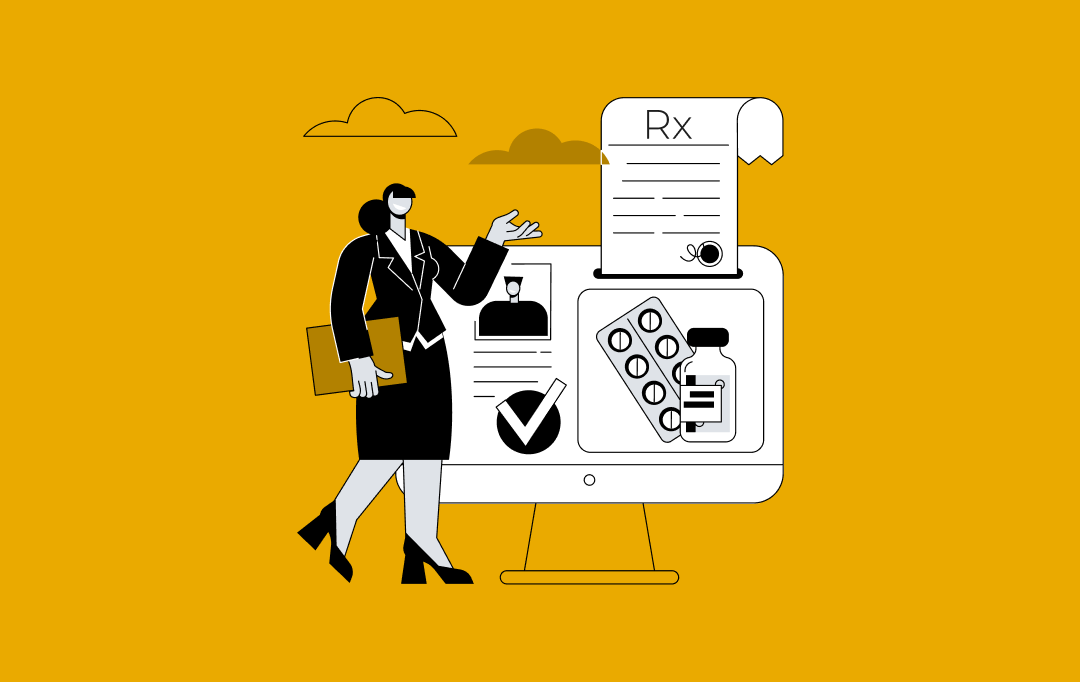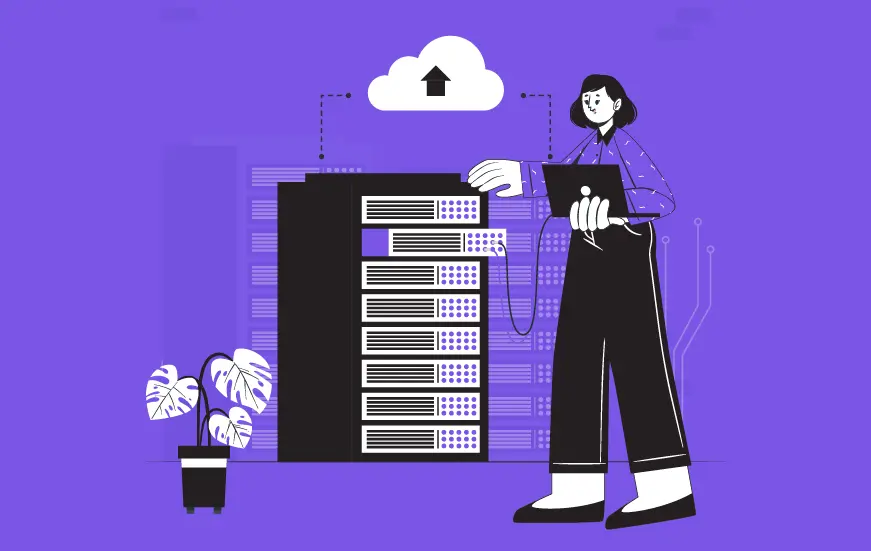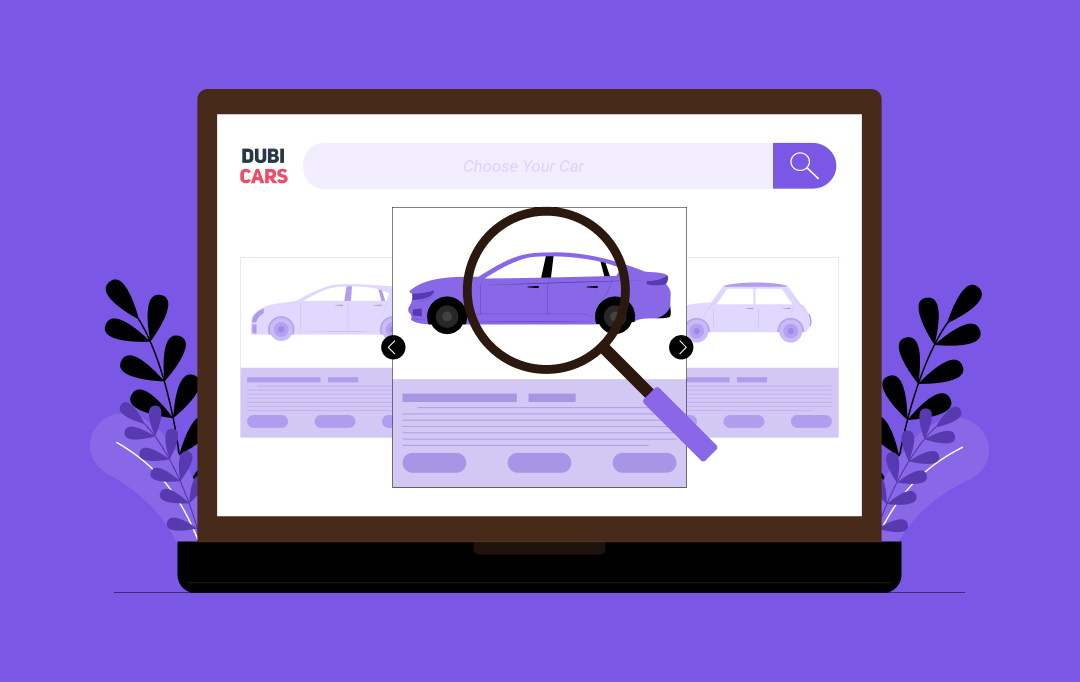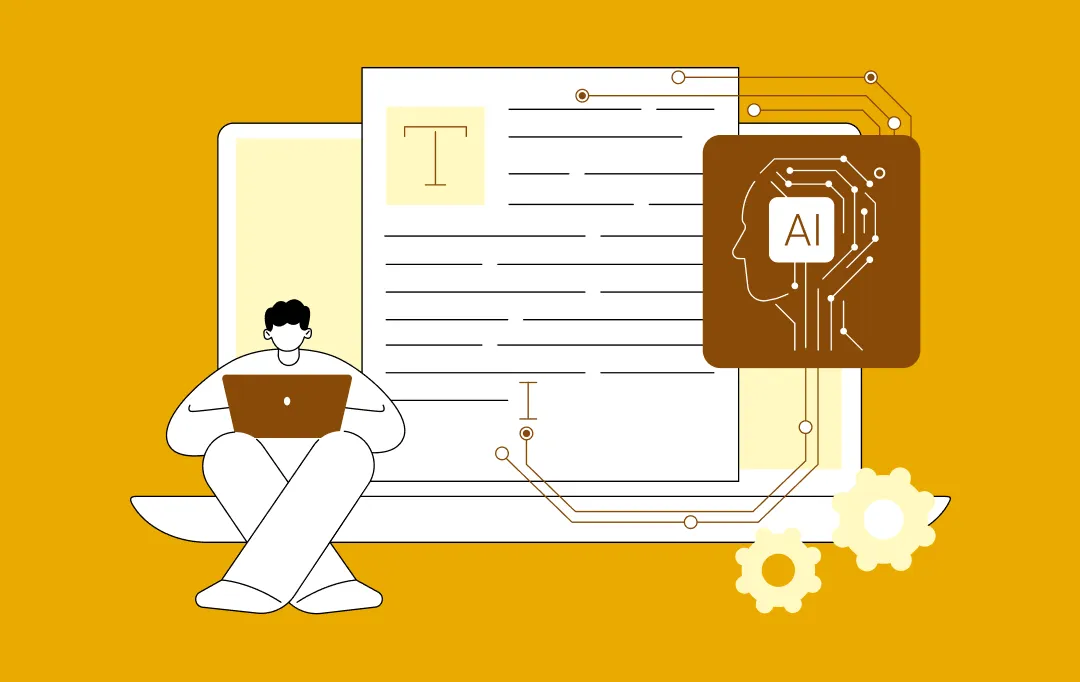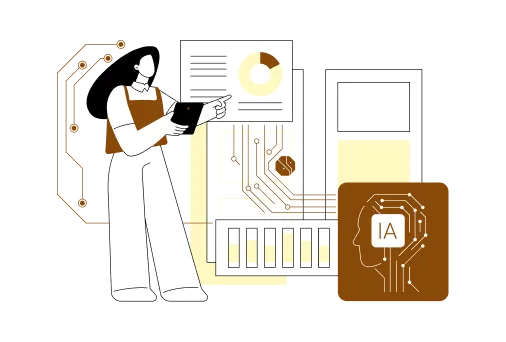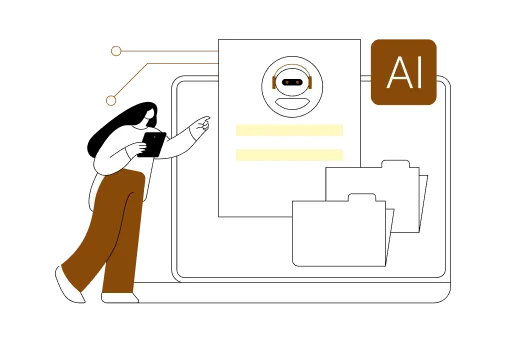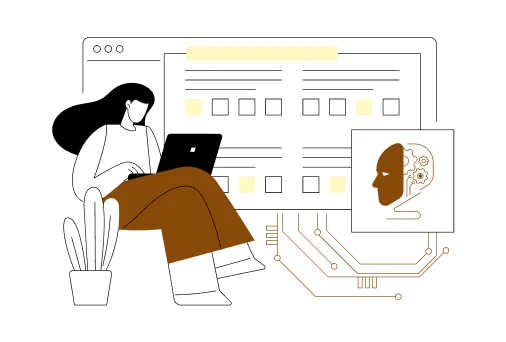- Why Australian Businesses Need an AI Consulting Partner
- How AI Consulting Firms Actually Work: A Step-by-Step Look at the Process
- The Australian AI Consulting Landscape
- Market Structure & Players
- Sector Focus & Opportunity Zones
- Trends to Watch (2026 and Beyond)
- How to Choose AI Consulting Firm in Australia
- 1. Technical Skill That Runs Deep
- 2. Experience That Fits Your Industry
- 3. Local Presence and Knowledge of Compliance
- 4. Helping People Adapt to AI
- 5. Good Communication and Cultural Fit
- 6. A Responsible Approach to Security and Ethics
- 7. Support That Doesn’t End After Launch
- Cost, ROI, and Risk: What Australian Businesses Should Expect
- Typical Pricing Models
- What Shapes the Cost
- Typical Cost Ranges in Australia
- Onshore vs Offshore Consulting Options
- Onshore Consulting (Australia-based firms)
- Offshore Consulting (Global partners)
- Common Pitfalls & Red Flags
- 1. Promising the Impossible
- 2. Lack of Transparency
- 3. Sending Data Offshore Without Controls
- 4. Ignoring People and Change
- 5. No Plan for Maintenance or Monitoring
- 6. Ignoring Local Laws and Guidelines
- 7. When Oversight Fails: The Deloitte Example
- Evaluating Partners: Step-by-Step Selection Framework
- 1. Get Clear on Your Goals and Readiness
- 2. Build a Smarter RFP
- 3. Shortlist a Few Who Actually Fit
- 4. Test the Relationship First
- 5. Measure What Matters
- 6. Be Specific Before You Sign
- 7. Scale With Care
- What’s Shaping The Future Of AI In Australia
- Choosing the Right AI Partner for Australia’s Next Growth Chapter
- FAQ’s
Key takeaways:
- Choosing the right AI consulting partner in Australia can mean the difference between real transformation and wasted investment.
- As Australia’s AI market grows past A$4 billion, the need to hire AI consultants in Australia who balance innovation with compliance has never been greater.
- A strong AI partner doesn’t just code, they help you plan, scale, and stay within Australia’s strict data and ethics frameworks.
- Costs for AI projects in Australia typically range from A$60K to A$600K+, but the right consultant helps you see ROI within 12–24 months
- Australia’s AI future belongs to businesses that combine responsible innovation with the right consulting expertise and long-term vision.
“Choosing the wrong AI partner isn’t just a wasted budget, it can become a liability. In Australia’s evolving regulatory and data landscape, the right consultant can make all the difference.”
Australia’s hit a moment where AI is moving from talk to action. The government’s National AI Capability Plan is all about building local talent and encouraging real industry use, while the AI Action Plan focuses on making sure that growth stays responsible and transparent.
In all of this, the role of AI consulting in digital transformation is to bridge the gap by turning big national ambitions into real, working solutions for everyday businesses.
Yet many organisations, especially SMEs and non-tech incumbents, struggle with where to start: Which vendor has the domain understanding? Which one can ensure compliance with Australian privacy laws? Who can guarantee sustainable, ethical AI?
This blog is for Australian business leaders who want a framework for evaluating and understanding how to choose an AI consulting firm in Australia.
Why Australian Businesses Need an AI Consulting Partner
AI is shaping the future of every industry, and Australia’s no exception. The potential is huge. according to the Australian government AI could add around $315 billion to the Australian economy by 2030. This enormous value is why AI transformation consulting in Australia is now essential, helping businesses turn this potential into tangible growth.
But the truth is, most companies aren’t quite there yet. Big enterprises might be testing AI at scale, but smaller and mid-sized businesses are still trying to figure out where to even begin.
That’s where the need to hire AI consultants in Australia becomes clear. Someone who’s done this before, who can turn big ideas into something that actually works for your business.
If you look around, the hurdles are easy to spot:
- There aren’t enough trained AI specialists to go around.
- Many organisations are sitting on messy, disconnected data that’s hard to use.
- Privacy and governance rules keep changing, from the Australian Privacy Principles (APPs) to new government frameworks on responsible AI.
Finding the best AI consultants Australia offers the fastest and most efficient way to overcome these talent and data infrastructure hurdles.
Appinventiv helps turn that gap into growth.
How AI Consulting Firms Actually Work: A Step-by-Step Look at the Process
When people hear AI consulting, they often imagine something fancy, something like a data scientist typing away at complex code. But that’s not really what it’s about. At its heart, AI consulting is just people helping businesses make better use of what they already have.
For businesses seeking clarity on the process, understanding what to look for in an AI consulting firm starts with knowing their fundamental approach.
A good consultant doesn’t start with technology. They start with questions.
Whatever the goal, the process usually moves through a few clear stages. The following stages outline the core functions of an AI consulting agency that drives actual business value.
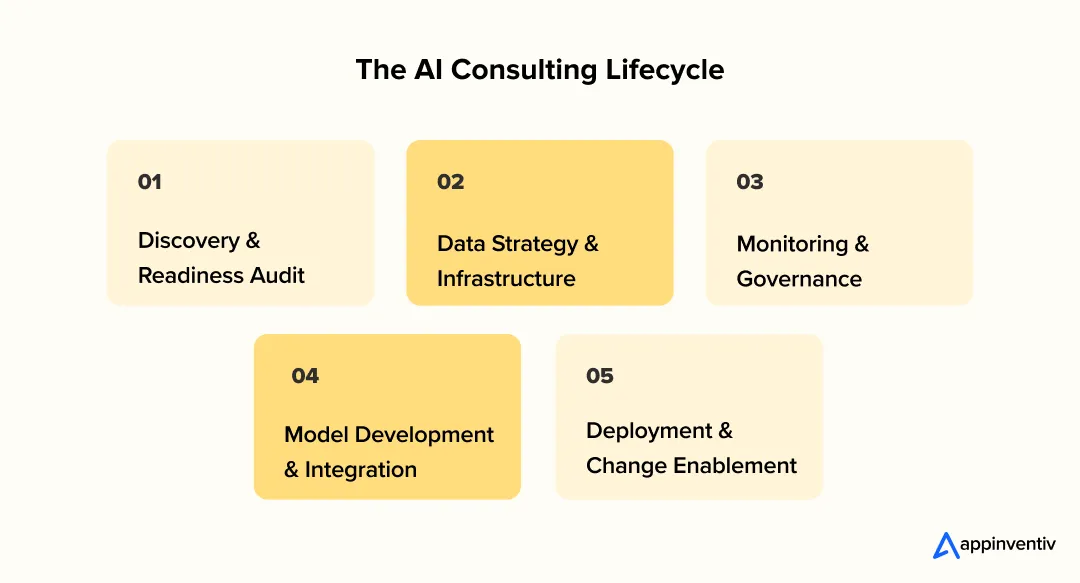
- Discovery & AI Readiness Audit: It all starts with a conversation. Consultants sit down to understand how your business works, what you want to improve, and whether you’re ready for AI. The importance of AI strategy consulting here is paramount; sometimes the first step isn’t building, it’s cleaning up what’s already there.
- Data Strategy & Infrastructure: Next comes getting your data in shape. Most companies already have plenty of it, just not in the right form. Consultants help organise, connect, and secure your data while keeping it compliant with Australian privacy laws.
- Model Development & Integration: This is where ideas turn into working systems. The team builds models that predict, automate, or analyse, and quietly fits them into your existing setup so your team can keep working the way they always have, just smarter.
- Deployment & Change Enablement: Rolling out AI takes patience. Consultants test everything, train your team, and make small adjustments as people get used to the new tools. The goal isn’t to replace anyone, it’s to make everyone’s job easier.
- Post-Launch Monitoring & Governance: Once the system is live, it still needs care. Consultants stick around to fine-tune, retrain, and keep everything running smoothly so your AI stays accurate, fair, and aligned with your business over time.
The Australian AI Consulting Landscape
Australia’s AI story has entered a more mature phase. The early excitement about experimentation is giving way to something more deliberate, businesses now want to see clear returns, while governments are setting the rules for how AI should be used responsibly.
The Australian government estimated that digital innovations including AI could contribute around A$315 billion to Australia’s GDP by 2030. At the same time, the national AI market itself is forecast to reach nearly USD 9.81 billion by 2030, up from USD 2.55 billion in 2022. Together, these signals explain why AI transformation consulting in Australia is rapidly shifting from a nice-to-have to a strategic necessity.
This rapid maturation means more businesses need to hire AI consultants in Australia who can blend innovation with trust. The consulting focus is shifting from “how do we start?” to “how do we scale and stay compliant?”
Market Structure & Players
Australia’s consulting ecosystem has evolved into three clear groups, each playing a distinct role in how organisations adopt AI.
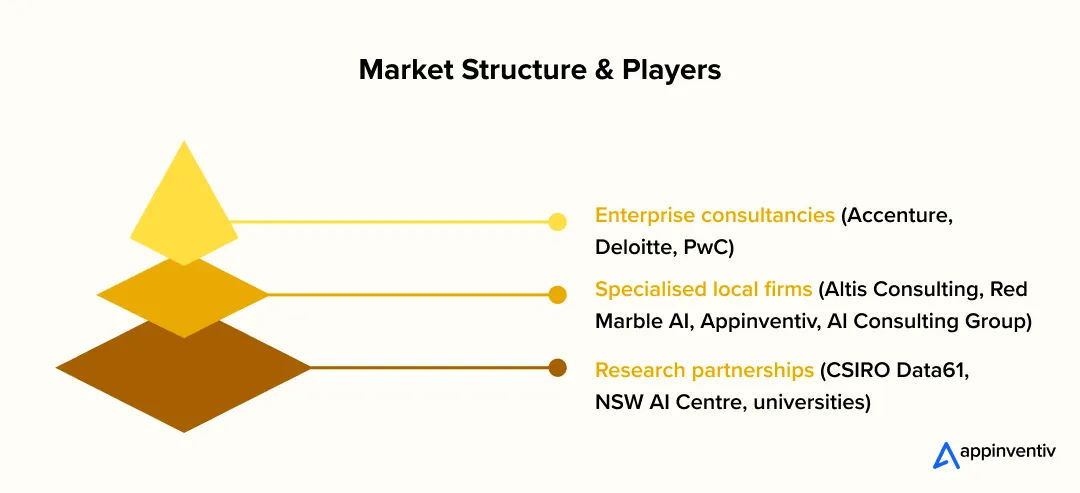
- Enterprise consultancies – Big names like Deloitte, Accenture, and PwC are leading the charge as the preferred AI consulting partner for enterprises, guiding large-scale transformations. They bring the structure and resources needed to help complex organisations integrate AI into every layer, from customer service to finance and operations.
- Specialised local firms – Companies such as Altis Consulting, Red Marble AI, Appinventiv and the AI Consulting Group are taking a more focused approach. They move faster, work closer to the ground, and are often the first call for mid-sized businesses ready to test AI in a practical setting.
- Research-driven partnerships – Institutions like CSIRO’s Data61 and the NSW AI Centre are bridging the gap between academia and industry. Their work on explainable AI and ethics frameworks is shaping how consultants and businesses alike approach implementation.
Sector Focus & Opportunity Zones
AI adoption across Australia is being led by industries where smarter decisions mean immediate value.
Mining and resources are using predictive analytics and safety systems to reduce downtime and protect workers — a major focus for a sector that still contributes over 10% to national GDP.
Agritech firms are using AI for yield forecasting, soil analytics, and water optimisation, supporting the sustainability goals.
Healthcare and MedTech are improving diagnostics and patient care through triage automation and AI-assisted imaging.
Government agencies are turning to AI to make citizen services faster and more transparent, guided by the AI Assurance Framework.
Financial services and fintech firms are deep into fraud prevention, credit scoring, and customer experience automation, multiple reports cited that most local startups now rely on AI for decision support.
These use cases show a pattern: AI works best when paired with strong governance, and that’s exactly where consulting expertise adds value.
Trends to Watch (2026 and Beyond)
As the AI consulting market matures, four shifts are shaping what’s next:
- From pilots to full adoption: The days of small experiments are ending. Businesses are now embedding AI into daily operations, and consulting firms are being asked to design long-term roadmaps, not one-off projects.
- Generative AI becomes mainstream: IMARC Group’s Australia Generative AI Market Report 2025–2033 forecasts that Australia’s generative AI market will grow at nearly 18% CAGR through 2033, bringing a surge in consulting work around integration, fine-tuning, and compliance.
- Collaboration with universities: Research institutions and consultancies are forming deeper partnerships to close the talent gap and develop ethical frameworks for enterprise use. CSIRO’s National AI Centre and universities like Monash and UNSW are leading this charge.
- Regulation becomes a growth driver: With the federal government’s National AI Capability Plan in motion, compliance isn’t just a checkbox, it’s becoming a competitive differentiator. Firms that can help clients meet new governance and privacy standards will lead the next phase of growth.
AI consulting in Australia is no longer about testing what’s possible, it’s about delivering results that last.
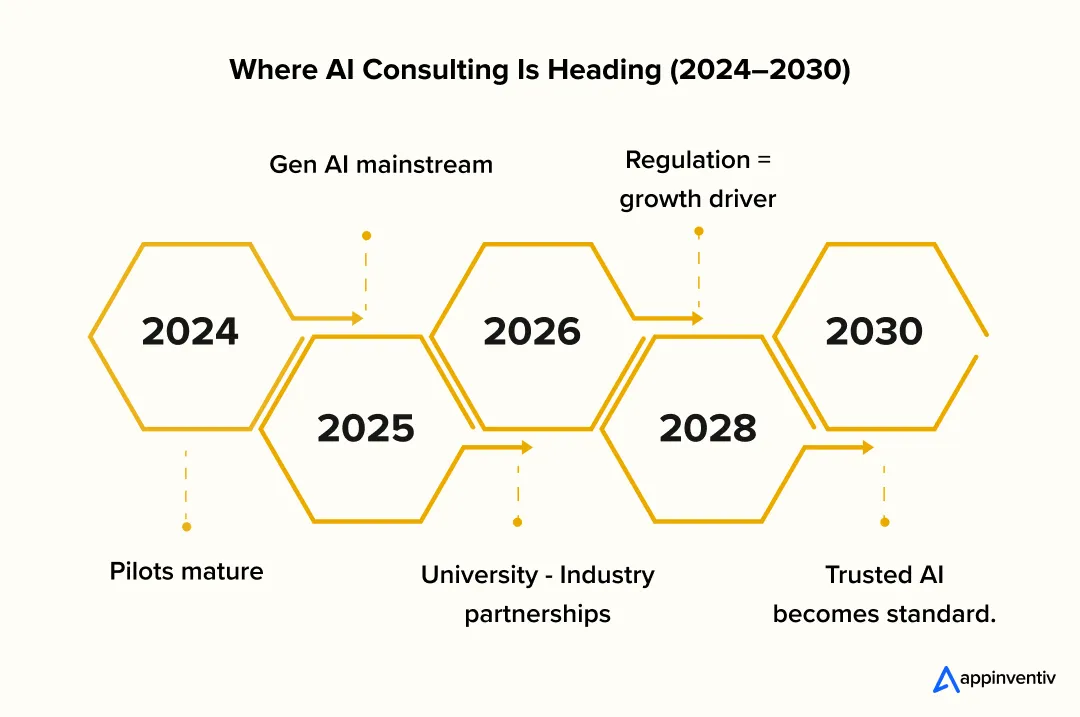
The next wave of growth will come from firms that can help clients move fast and stay responsible, blending innovation with trust, and turning AI from an experiment into an everyday advantage.
How to Choose AI Consulting Firm in Australia
When you need to hire AI consultants in Australia, the right team won’t just drop in, build something, and leave. They’ll listen first, challenge your thinking when needed, and make sure the solution fits your goals and your people.
To make an informed decision, a practical checklist for choosing AI consulting companies is essential. The following seven points constitute a framework for selecting the right AI partner, guiding you through assessing local compliance, technical capability, and cultural fit.
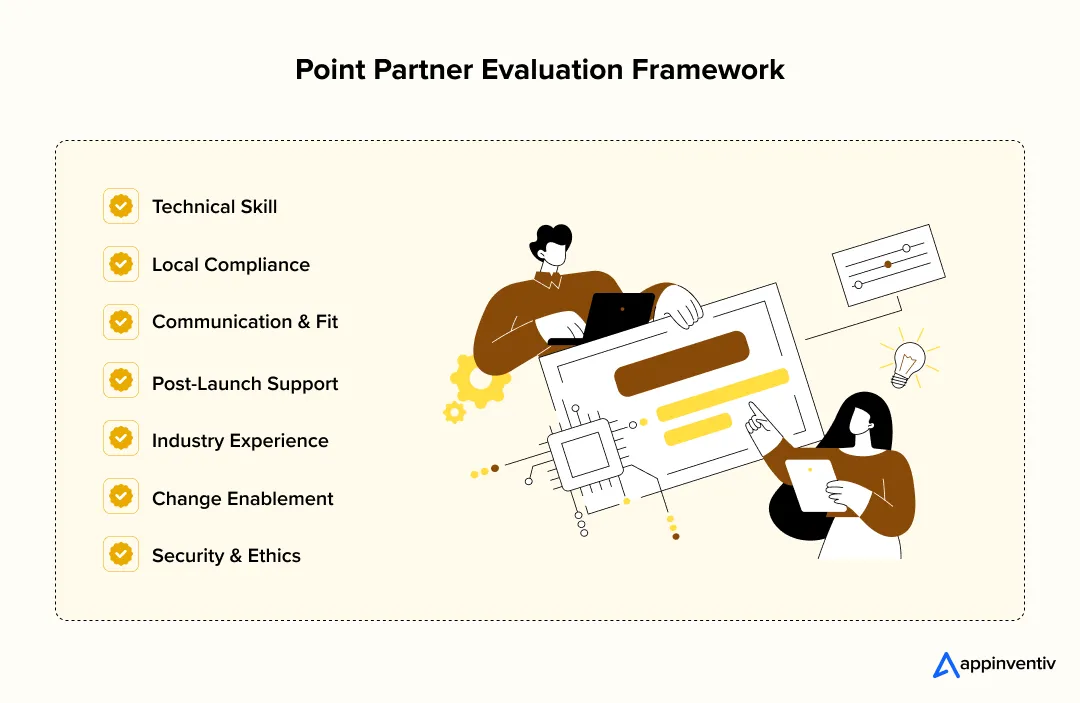
1. Technical Skill That Runs Deep
A good AI partner knows the technology inside out but doesn’t feel the need to show off. They can talk confidently about platforms like TensorFlow, PyTorch, Azure ML, or AWS SageMaker without drowning you in jargon.
When you ask how they’ll train or monitor a model, they should be able to explain it in plain language. The same goes for updates and retraining, these are the parts that keep an AI system working long after launch.
The best firms don’t just install tools. They design systems that fit your business, scale over time, and stay reliable under pressure.
2. Experience That Fits Your Industry
AI only works when it’s built for your world. Every industry has its own data challenges, compliance rules, and daily realities.
- In mining, it might mean predicting equipment breakdowns or improving safety.
- In healthcare, it could be speeding up diagnosis without compromising privacy.
- In finance, it’s fraud detection and smarter lending models.
- In agriculture, it helps plan harvests and manage resources.
- In logistics, it keeps deliveries on track and costs under control.
Look for a partner who already understands your industry language. They’ll know what matters, what doesn’t, and where AI can actually make a difference.
3. Local Presence and Knowledge of Compliance
In Australia, rules around privacy and ethics aren’t optional, they shape how AI is built and used. A strong partner will already be familiar with the Australian Privacy Principles, the Responsible AI Policy, and the National AI Assurance Framework.
Ask them where your data will be stored and who will have access to it. Data sovereignty; keeping information within Australia is a must for most businesses and government projects.
Working with a local team helps too. The specific benefits of working with an aussie AI consultancy firm include deep familiarity with Australian procurement standards, reporting expectations, and local adoption pace.
4. Helping People Adapt to AI
The toughest part of any AI rollout isn’t the tech, it’s the people. Employees need time, clarity, and trust before they’ll rely on something new.
A capable consulting firm understands this. They don’t just build systems; they help your team learn to use them. That means workshops, training sessions, and honest conversations about how AI fits into everyday work.
When people understand how technology helps them, adoption happens naturally. It stops being “AI” and starts being just “how we work now.”
5. Good Communication and Cultural Fit
AI projects can run for months, sometimes years. You’ll be spending a lot of time with your consulting team, so communication matters just as much as capability.
Pay attention early on. Do they listen carefully? Do they explain things simply? Are they open about what they can and can’t do?
A partner who communicates well will make the entire process smoother and more predictable.
Good collaboration isn’t about agreeing on everything; it’s about being able to talk honestly and keep the project moving forward together.
6. A Responsible Approach to Security and Ethics
AI systems handle sensitive data and often make decisions that affect real people. That’s why your partner needs to take fairness, transparency, and AI security seriously.
Ask how they check for bias and whether their models can explain how they reach conclusions. Make sure they follow recognised security standards such as ISO 27001 or SOC 2 and that all sensitive data is properly encrypted and access-controlled.
Ethical AI isn’t a checkbox. It’s about protecting your organisation’s reputation and ensuring people can trust the system’s output.
7. Support That Doesn’t End After Launch
AI doesn’t stop learning once it goes live. Data changes, conditions shift, and models start to drift. A reliable partner plans for this from the start.
Ask what happens after the project goes live. How often will they review the model? How do they measure performance? What’s their process for retraining or fine-tuning?
A good consulting firm stays involved, helping you keep things accurate, fair, and compliant. That’s how you get long-term value instead of a one-off solution.
Whether you’re starting small or scaling enterprise-wide, Appinventiv’s AI consulting services in Australia are built to match your data maturity, compliance needs, and long-term goals.
Cost, ROI, and Risk: What Australian Businesses Should Expect
AI projects can be transformative, but they’re not small undertakings. They demand time, money, and clarity.
Understanding the cost of hiring an AI consulting partner and knowing how to measure success makes the whole decision-making process much easier.
Typical Pricing Models
When you start talking to AI consultants, you’ll usually come across three common pricing setups.
Project-based (fixed or milestone)
You pay for a defined scope of work — for example, building a model, integrating it into your system, and testing it over a few months. It’s structured and predictable, which suits projects with clear outcomes.
Retainer or subscription model
Some businesses prefer to have an ongoing relationship. In this setup, the consultancy provides continuous support, monitoring, and updates. It’s a bit like adding an external AI team that scales as you do.
Outcome-based pricing
Here, part of the payment depends on results — say, a certain level of cost reduction or improved accuracy. It’s performance-driven, which can work well if both sides are clear on how success will be measured.
What Shapes the Cost
No two AI projects are priced the same. The cost depends on what you’re building, how ready your data is, and what infrastructure you already have.
| Driver | Why It Matters |
|---|---|
| Data quality | Cleaning and organising data often takes up more time than building the model itself. |
| Model complexity | A simple prediction engine costs far less than a custom large language model. |
| Cloud and compute | Training and running AI models on GPUs adds storage and processing costs. |
| Integration work | Linking new AI tools with your existing systems (like ERP or CRM) requires custom development. |
| Compliance & ethics | Adding checks for bias, privacy, and fairness takes extra effort — but it protects you later. |
| Training & change management | Teaching teams how to use new tools ensures adoption and better ROI. |
A capable consulting firm will help you balance these factors — simplifying where possible and breaking the rollout into stages so you don’t overspend early.
Typical Cost Ranges in Australia
To put things in perspective, here’s what AI projects typically cost in Australia today (approximate conversions shown in USD):
- Smaller pilot or proof of concept – A$61,000 to A$112,000 (~US $40,000–$80,000)
- Mid-sized project – A$112,000 to A$306,000 (~US $80,000–$200,000)
- Enterprise or generative AI system – A$306,000 to A$613,000+ (~US $200,000–$400,000+)
Larger enterprise builds can go higher, especially when they involve complex integrations or custom generative AI work.
The Main Risks — and How Good Consultants Manage Them
AI isn’t just about technology. It’s about accountability, adoption, and long-term reliability.
Here’s where the risks usually show up — and how the right partner helps you stay ahead of them.
| Risk Area | What Can Go Wrong | How a Good Consultant Helps |
|---|---|---|
| Legal / Privacy | Breaches of the Australian Privacy Principles (APPs) or misuse of personal data. | Keeps data hosted in Australia, applies privacy-by-design, and builds clear audit trails. |
| Bias and fairness | Unintended discrimination or skewed model behaviour. | Runs fairness tests, tracks performance across user groups, and adds human review checkpoints. |
| Financial (Scope creep) | The project grows beyond its budget or purpose. | Breaks delivery into milestones, defines success early, and uses fixed-cost phases. |
| Operational adoption | Teams don’t understand or trust the tool. | Conducts training, change management sessions, and user feedback rounds. |
| Model performance drift | Accuracy drops as new data comes in. | Monitors the system, retrains models, and schedules quarterly reviews. |
A skilled consultancy doesn’t just deliver models — it protects your investment by embedding processes that prevent small problems from becoming costly ones.
ROI and What “Success” Really Means
AI should pay for itself, but the returns aren’t always instant. You start seeing results once the system is integrated and your team begins using it effectively.
Common forms of ROI include:
- Lower operating costs through automation
- Faster decisions and improved efficiency
- Increased revenue from better targeting or predictions
- Fewer compliance or fraud-related losses
- Stronger reputation for innovation and reliability
Most Australian businesses recover their investment in 12 to 24 months, depending on project scale and adoption speed.
Good consulting partners don’t just build technology — they help you measure impact. They define what “good” looks like, track it over time, and make sure the system keeps improving.
Onshore vs Offshore Consulting Options
When you’re choosing an AI consulting partner in Australia,, one of the biggest questions is whether to keep things local or look overseas. There’s no single right answer — it really comes down to what you value more: proximity or reach.
Onshore Consulting (Australia-based firms)
Working with a local team feels straightforward. You can jump on quick calls, meet face-to-face, and they already speak the same regulatory language. For projects involving public data, healthcare, or anything tied to strict privacy rules under the Australian Privacy Principles (APPs), having someone nearby can make life a lot easier.
Local consultancies also tend to have a good read on how Australian organisations work — the pace, the approval layers, the sensitivity around data and trust.
Offshore Consulting (Global partners)
Offshore consulting, on the other hand, opens up more flexibility and depth. It gives you access to wider global talent, advanced expertise, and faster delivery — often at a lower cost.
Many offshore firms have worked across industries and regions, meaning they bring tested frameworks and diverse problem-solving experience to the table.
For many Australian companies, this balance works perfectly. You get global experience and cost flexibility without losing control of your data or direction. Some even go hybrid — a local strategy lead supported by an offshore build team. It’s efficient, cost-friendly, and still grounded in trust.
Common Pitfalls & Red Flags
Even with the best consultants, AI projects can stumble. Most problems don’t come from the technology itself but from how people plan, communicate, or cut corners along the way. Knowing what to watch for early can prevent wasted effort and serious reputational damage later.
Here are some warning signs to look out for when you need to hire AI consultants in Australia.
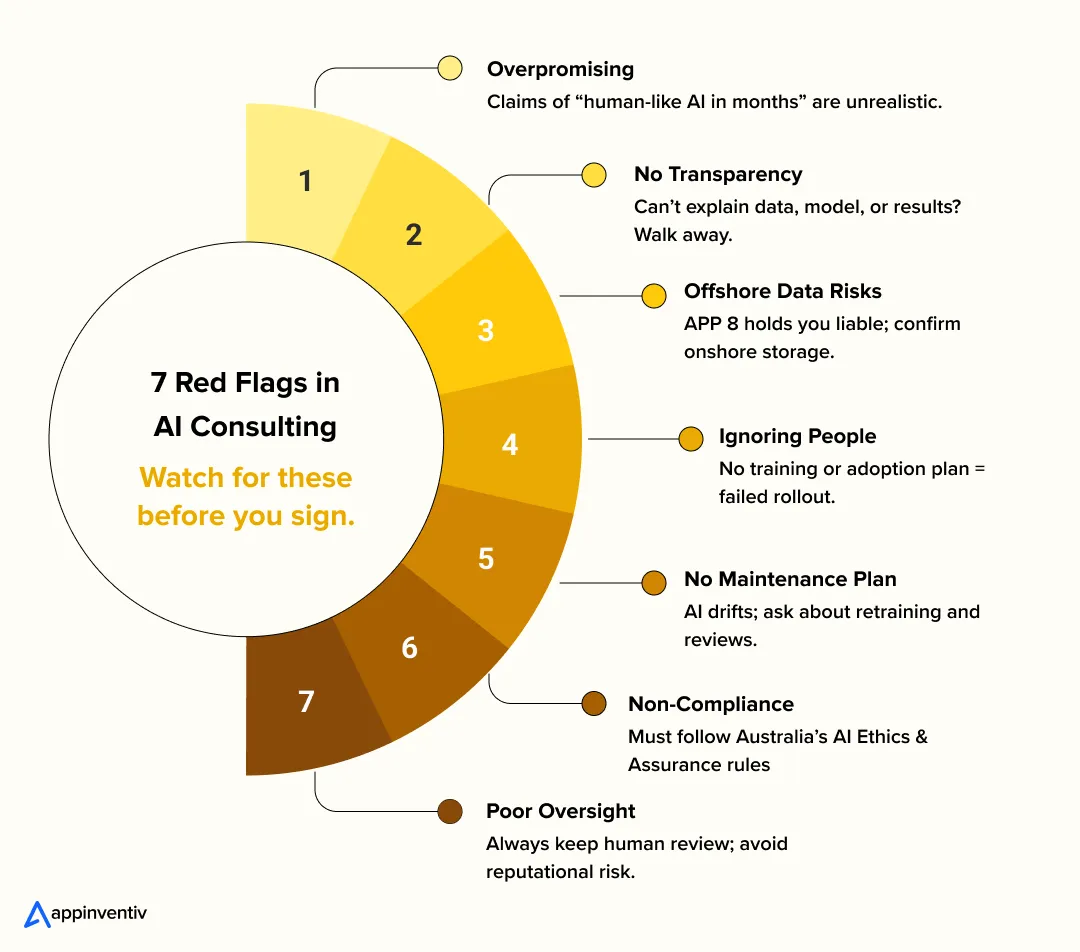
1. Promising the Impossible
If someone claims they can build human-like intelligence or automate your entire operation within months, that’s a clear red flag. AI does not fix every problem overnight. It works best when applied to specific business challenges with realistic timelines.
Australian organisations are still building their data foundations and improving compliance frameworks. A partner who skips these basics in favour of grand promises will leave you with more confusion than progress.
2. Lack of Transparency
You should always know how your AI makes decisions and what data it uses. A consultant who avoids questions about model design, data sources, or error handling is hiding something important.
Ask them to show you:
- What data sets were used and where they are stored.
- How results are validated before release.
- What process is in place for monitoring or retraining models.
Transparency builds trust. If they cannot explain their work clearly, walk away.
3. Sending Data Offshore Without Controls
Some firms quietly outsource data processing or model building to offshore teams. This can save them money but puts your compliance and security at risk.
Under Australia’s Privacy Act (APP 8), the responsibility for data protection stays with you, even if the work is done overseas. Make sure your consultant can confirm where data is handled and how it is protected. Any uncertainty here can become a major liability later.
4. Ignoring People and Change
AI often fails not because the system is wrong but because people never learn to use it properly. A consulting partner that focuses only on the technical build and ignores your team’s adoption strategy is setting you up for resistance.
The best consultants spend time with your employees. They explain how the new tools make daily work easier and show that AI is here to assist, not replace. The more your team trusts the system, the better it performs.
5. No Plan for Maintenance or Monitoring
AI is not a one-time project. Once deployed, models drift as data and conditions change. If your partner does not plan for ongoing updates, you will eventually get unreliable results.
Ask how they handle model retraining, bias detection, and periodic performance reviews. Good partners treat maintenance as part of the job, not an optional extra.
6. Ignoring Local Laws and Guidelines
In Australia, AI work isn’t just about getting the tech right, it’s about staying within the lines. Projects here are expected to follow national standards like the AI Ethics Principles and the Government’s Assurance Framework for AI.
If a partner doesn’t understand those rules, they can put your business at real risk. Make sure they know how to keep your data onshore, follow local privacy laws, and show you exactly how decisions are made at every stage of the build.
7. When Oversight Fails: The Deloitte Example
In 2024, Deloitte Australia refunded part of a government contract after it was revealed that a report contained AI-generated content with fabricated references (ABC News, AP News).
Deloitte accepted responsibility, but the case reminded everyone that AI outputs must always be reviewed by humans.
Whether you are publishing a report, running analytics, or automating customer communication, every AI-driven result still needs human oversight.
The right AI partner will never overpromise or hide behind jargon. They will give you a clear view of the process, involve your team, and stay accountable after delivery.
If a consultant cannot tell you how their system works or how they plan to protect your data, that is not innovation — it is a warning.
In a space built on trust and precision, clarity will always be your best safeguard.
Evaluating Partners: Step-by-Step Selection Framework
Choosing the AI consulting partner for enterprises isn’t just another procurement exercise. You’re choosing people who’ll handle your data, shape your systems, and work side by side with your team. It’s part strategy, part instinct.
The process below is your guide on how to choose an AI consulting partner in Australia. It will help you move from confusion to clarity, and make sure you choose a partner who fits both your goals and your way of working.
1. Get Clear on Your Goals and Readiness
Before you start making calls, pause for a moment. What do you actually want from AI? Maybe it’s faster reporting, fewer manual errors, or better customer insights. Keep it simple, and write it down.
Then take an honest look at your readiness. Is your data clean? Are your teams open to change? Do you have the right tools or tech foundations in place?
You don’t need everything figured out, that’s what consultants help with. But knowing where you stand helps you find someone who can meet you there, not sell you dreams you can’t use.
2. Build a Smarter RFP
An RFP isn’t just paperwork. It’s your chance to see how a partner thinks. Use this step as your final checklist for choosing AI consulting companies. Skip the generic “tell us about your company” questions and ask about real things:
- How do you handle projects when data quality is poor?
- How do you make sure your AI systems stay fair and explainable?
- What’s your process for retraining models after launch?
- How familiar are you with Australian privacy and compliance rules?
The best teams will give clear, grounded answers. The ones who dodge specifics are the ones to avoid.
If you’re comparing multiple vendors, use a simple scorecard to stay objective, but don’t ignore your instincts. Sometimes the right partner just feels right after one meeting.
3. Shortlist a Few Who Actually Fit
You don’t need a long list. Three to five good candidates are enough.
Big global consultancies have structure, but smaller Australian firms often bring speed and flexibility. Focus on fit, not fame. Ask for examples of their work in your industry — mining, finance, healthcare, logistics, whatever’s relevant to you.
If they can point to something done locally, with measurable results, that’s a good sign.
4. Test the Relationship First
Before you commit, run a short discovery workshop. Two or three days is enough to see how a team thinks and communicates.
You’ll learn quickly who listens and who lectures. Who explores ideas with you and who just wants to sell a standard solution.
If the workshop goes well, move into a small pilot. Pick one use case, one dataset, one goal. Keep it real, but manageable.
A solid pilot should:
- Use actual data from your systems
- Include the people who’ll use the solution
- Have clear success metrics
- Deliver something visible within weeks
This is where you find out how a firm behaves under pressure, not just what they promise in slides.
5. Measure What Matters
Once the pilot wraps up, evaluate it from all angles. Did they do what they said they’d do? Were they open when things didn’t go as planned? Did they work well with your internal team?
You’re not just measuring technical results. You’re measuring trust, communication, and effort.
Ask your staff what it was like working with them. Often, the quiet feedback from your team will tell you more than any report.
6. Be Specific Before You Sign
When you reach the contract stage, clarity is everything.
Get the key points written down:
- Who owns the model and data
- How success will be tracked
- What happens if the model’s accuracy drops
- Who’s responsible for retraining and updates
- What kind of support you’ll get after launch
A professional firm will welcome this level of detail. It keeps expectations clear and prevents friction later.
7. Scale With Care
Good AI projects grow in phases. Don’t rush it.
Pilot (3–6 months): Test one use case. Focus on learning.
Scale (6–12 months): Expand what works. Build internal comfort.
Institutional (12+ months): Train your teams. Make AI part of the everyday workflow.
A good consulting partner will guide you through these stages without pushing too hard. They’ll know when to move forward, and when to slow down and fix things first.
What’s Shaping The Future Of AI In Australia
AI in Australia is moving into a new stage — less about experiments, more about accountability.
The next few years will decide how the country balances innovation with trust.
Here’s what’s likely to shape that future.
- Rules Are Getting Real: The government’s National Framework for the Assurance of AI is set to shift from policy advice to something closer to regulation. That means companies and agencies won’t just be encouraged to use AI responsibly — they’ll be required to. Every system will need to show how it handles fairness, privacy, and accountability. Read how the NSW AI Assessment Framework is reshaping enterprise AI compliance.
- Local Models Take Centre Stage: Australia is starting to build its own AI foundation models instead of relying completely on tools built overseas. Reports from CSIRO Data61 point to growing investment in local datasets and fine-tuned models that understand Australian language, law, and industry context. Consultancies will need stronger skills in data engineering and MLOps to keep up.
- Universities and Industry Team Up: The lines between research and business are blurring fast. More consulting firms are now working directly with CSIRO, UNSW, ANU, and other universities to turn lab innovations into real-world applications. This model helps new ideas reach the market faster while keeping an ethical backbone.
- Trust Will Be the Deciding Factor: AI will face growing public scrutiny — not about what it can do, but how it does it. People want to know how decisions are made, what data is used, and who’s accountable when things go wrong. Organisations that build explainable, transparent systems will find it much easier to earn both customers and contracts.
- Money Will Follow Responsible Innovation: Government funding is on the rise. From federal grants under the National AI Plan to state-level programs like South Australia’s A$28 million AI pilot fund, there’s clear support for businesses that want to scale responsibly. Consulting partners who can align projects with these initiatives will have an early-mover advantage.
In short: Australia’s AI future isn’t about chasing hype — it’s about earning trust. The winners will be the teams who build AI that’s not only smart, but also safe, local, and human-centred.
Connect with Appinventiv’s experts to identify the best starting point for your journey.
Choosing the Right AI Partner for Australia’s Next Growth Chapter
When you think about how to choose an AI consulting company in Australia, it really comes down to trust and understanding. The right partner won’t talk in buzzwords, they’ll listen first. They’ll get to know your business, how your data flows, and what outcomes actually matter to you.
At Appinventiv, we’ve spent years helping Australian teams bring AI into everyday operations, not as a distant idea, but as a tool that delivers real, visible change. Sometimes that means starting small: testing a model, learning what works, and building from there. Other times, it means scaling a solution across an entire enterprise with a strong focus on governance and compliance.
For us, AI isn’t about hype. It’s about building systems that people can use, understand, and trust. Whether you’re just starting out or planning something bigger, we’ll help you do it with clarity and confidence.
If you’re looking for an AI consulting partner who knows the local landscape and values long-term partnerships, our team at Appinventiv is here to help you turn smart ideas into results that last.
Talk to our team to see how a tailored AI strategy can help you move from early exploration to measurable business outcomes.
FAQ’s
Q. Why Do Australian Businesses Need AI Consultants?
A. Across Australia, businesses are realizing that AI isn’t just a buzzword anymore — it’s a real competitive edge. From automating reports to predicting demand, AI consultants help companies use data in smarter ways. They also know how to work within Australia’s rules around data privacy and security, which keeps everything compliant while still helping the business grow.
Q. How to Evaluate AI Consulting Companies?
A. Not all AI consultants bring the same value. Some focus only on tech, while others understand both technology and business outcomes. The best approach is to look for a partner who’s already delivered projects in your industry and can clearly explain the results you can expect.
Understanding what drives the cost and how to measure success is crucial when you’re figuring out how to choose an AI consultant in Australia — it makes the entire process simpler and helps you avoid surprises later.
Q. How AI Consulting Can Improve Business Operations?
A. AI consulting often starts small — maybe automating a few reports or helping teams make better use of existing data. But over time, it can completely change how operations run. Predictive tools can flag delays before they happen, chatbots can take care of repetitive tasks, and analytics can help managers make faster, better decisions. It’s about making day-to-day work easier, not replacing people.
Q. What Is the Future of AI for Aussie Businesses?
A. The next few years will be big for Australian businesses adopting AI. With government support through programs like the National AI Capability Plan, AI is moving from pilot projects to real-world results. We’ll see more small and mid-sized companies using AI to cut costs, manage risk, and build customer trust — all while making sure systems remain transparent and ethical.
Q. Why You Need to Hire AI Consulting Experts?
A. Even the most capable teams sometimes need outside help to move faster. AI consulting experts bring in tried-and-tested methods, specialized tools, and a clear plan for turning ideas into action. They know what works, what doesn’t, and how to tailor AI for your specific goals. Instead of spending months figuring things out, you start seeing results much sooner.
Q. How Much Does Hiring an AI Consulting Firm Cost?
A. There’s no one-size-fits-all number here. Some companies spend a few thousand dollars testing a small AI feature, while others invest hundreds of thousands in full-scale automation. The price usually depends on the data you already have, the systems you use, and how complex the problem is. A good consultant will be upfront about the cost drivers so you can make informed choices without hidden surprises.
Q. Pros and Cons of Hiring AI Consulting Firms
A. Pros: You get instant access to experience, technology, and best practices that could take years to build in-house.
Cons: It can feel expensive at first, and you’ll depend on an external partner for a while.
But for most companies, the trade-off is worth it as you move faster, avoid costly mistakes, and gain a clearer sense of how AI can actually fit your business.


- In just 2 mins you will get a response
- Your idea is 100% protected by our Non Disclosure Agreement.
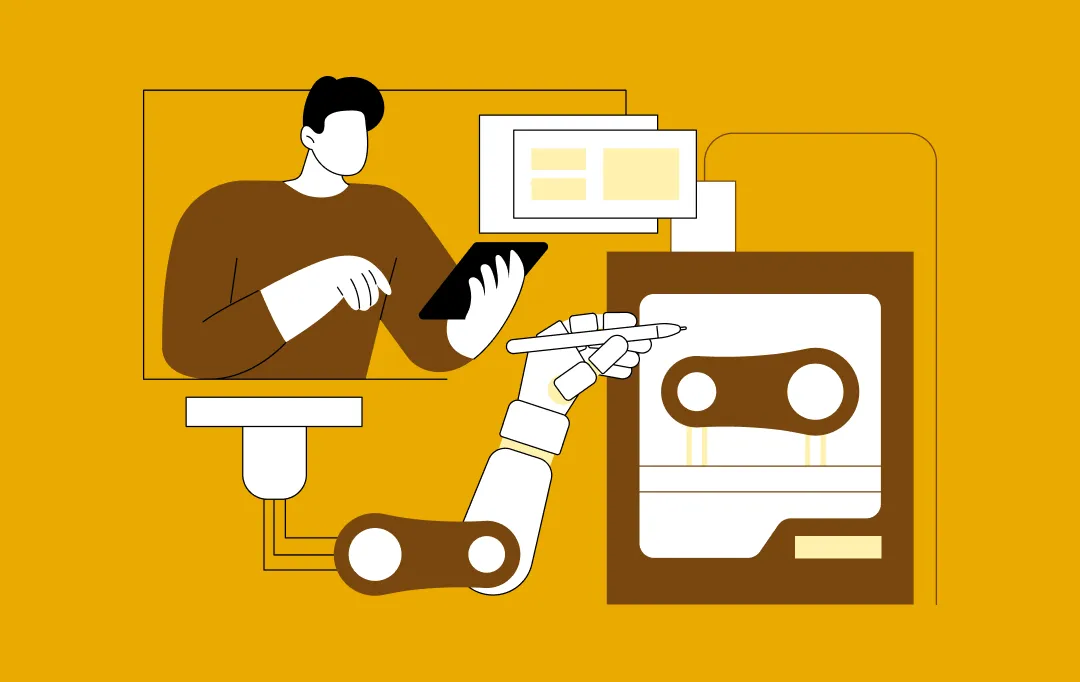
Governance vs. Speed: Designing a Scalable RPA CoE for Enterprise Automation
Key takeaways: Enterprise RPA fails at scale due to operating model gaps, not automation technology limitations. A federated RPA CoE balances delivery speed with governance, avoiding bottlenecks and audit exposure. Governance embedded into execution enables faster automation without introducing enterprise risk. Scalable RPA requires clear ownership, defined escalation paths, and production-grade operational controls. Measuring RPA…
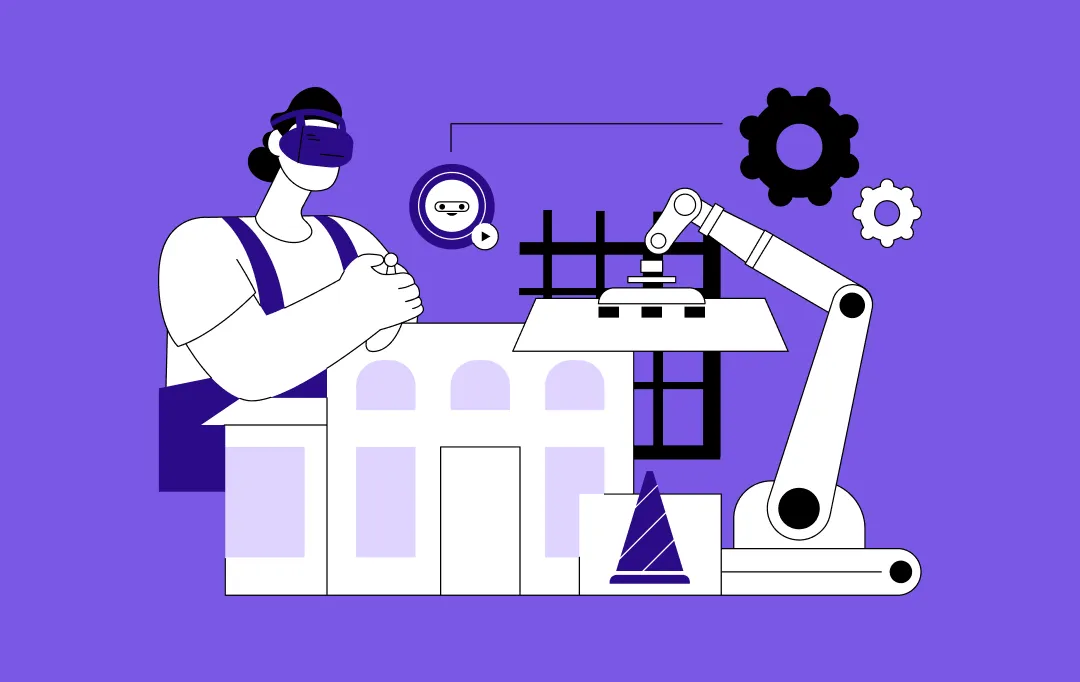
How AI Overhauling Industrial Automation in Australia
Key takeaways: AI is shifting industrial automation from rule-based to data-driven decision ecosystems Predictive and autonomous operations are improving efficiency and cost optimisation Australian industries are leveraging AI to solve workforce, sustainability, and compliance challenges Enterprises adopting AI early gain competitive, operational, and economic advantages Industrial automation in Australia is no longer just an engineering…
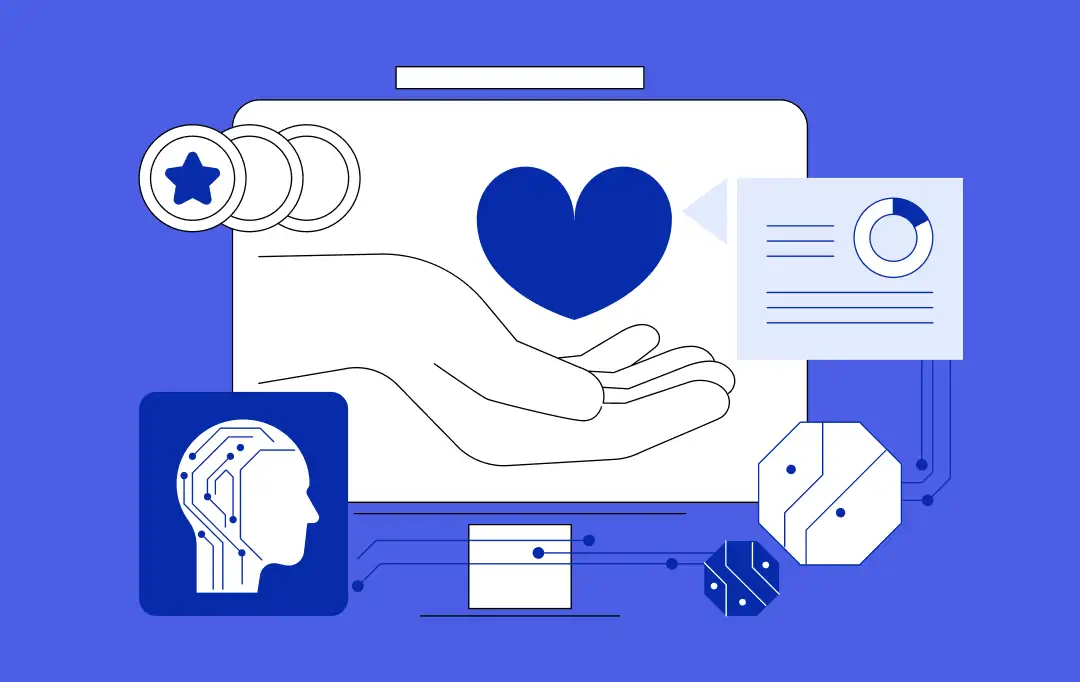
Implementing Retrieval-Augmented Generation in Healthcare Systems: Challenges, Use Cases & ROI
Key takeaways: RAG helps clinicians make better decisions by connecting AI responses to trusted clinical data sources. Healthcare organizations are gradually adopting domain-specific AI to improve efficiency, compliance, and operational clarity. Successful RAG deployment usually depends on strong governance, interoperability planning, and secure data practices. Retrieval-backed AI can ease documentation workload while improving accuracy, productivity,…






















